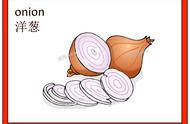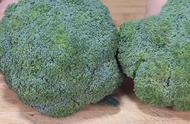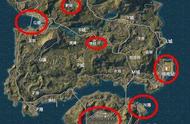Unit 4 Reading A LETTER HOME 一封家书
课文
Dear Rosemary,
Thanks for your letter, which took a fortnight to arrive. It was wonderful to hear from you. I know you're dying to hear all about my life here, so I've included some photos which will help you picture the places I talk about.
You asked about my high school. Well, it's a bush school – the classrooms are made of bamboo and the roofs of grass. It takes me only a few minutes to walk to school down a muddy track. When I reach the school grounds there are lots of "good mornings" for me from the boys. Many of them have walked a long way, sometimes up to two hours, to get to school.
There's no electricity or water and even no textbooks either! l'm still trying to adapt to these conditions. However, one thing is for sure, I've become more imaginative in my teaching. Science is my most challenging subject as my students have no concept of doing experiments. In fact there is no equipment, and if I need water I have to carry it from my house in a bucket! The other day I was showing the boys the weekly chemistry experiment when, before I knew it, the mixture was bubbling over everywhere! The boys who had never come across anything like this before started jumping out of the windows. Sometimes I wonder how relevant chemistry is to these students, most of whom will be going back to their villages after Year 8 anyway. To be honest, I doubt whether I'm making any difference to these boys' lives at all.
You asked whether I'm getting to know any local people. Well, that's actually quite difficult as I don't speak much of the local English dialect yet. But last weekend another teacher, Jenny, and 1 did visit a village which is the home of one of the boys, Tombe. It was my first visit to a remote village. We walked for two and a half hours to get there - first up a mountain to a ridge from where we had fantastic views and then down a steep path to the valley below. When we arrived at the village, Tombe's mother, Kiak, who had been pulling weeds in her garden, started crying "ieee ieee". We shook hands with all the villagers. Everyone seemed to be a relative of Tombe's.
Tombe's father, Mukap, led us to his house, a low bamboo hut with grass sticking out of the roof - this shows it is a man's house. The huts were round, not rectangular like the school buildings.
There were no windows and the doorway was just big enough to get through. The hut was dark inside so it took time for our eyes to adjust. Fresh grass had been laid on the floor and there was a newly made platform for Jenny and me to sleep on. Usually Kiak would sleep in her own hut, but that night she was going to share the platform with us. Mukap and Tombe were to sleep on small beds in another part of the hut. There was a fireplace in the centre of the hut near the doorway. The only possessions I could see were one broom, a few tin plates and cups and a couple of jars.
Outside Mukap was building a fire. Once the fire was going, he laid stones on it. When hot, he placed them in an empty oil drum with kau kau (sweet potato), corn and greens. He then covered the vegetables with banana leaves and left them to steam. I sniffed the food; it smelled delicious. We ate inside the hut sitting round the fire. I loved listening to the family softly talking to each other in their language, even though I could not participate the conversation. Luckily, Tombe could be our interpreter.
Later, I noticed a tin can standing upside down on the grill over the fire. After a short time Tombe threw it out of the doorway. I was puzzled. Tombe told me that the can was heated to dry out the leftover food. They believe that any leftovers attract evil spirits in the night, so the food is dried up in the can and the can is then thrown out of the hut. Otherwise they don't waste anything.
We left the village the next morning after many goodbyes and firm handshakes. My muscles were aching and my knees shaking as we climbed down the mountain towards home. That evening I fell happily into bed. It was such a privilege to have spent a day with Tombe's family.
It's getting late and I have to prepare tomorrow's lessons and do some paperwork. Please write soon.
Love
Jo
【译文】(建议:看译文时再次点播录音,一边跟读)
一封家书
亲爱的罗斯玛丽:
谢谢你的来信,这封信两星期才到。收到你的信真是太高兴了。我知道你急于了解我在这儿的生活情况。因此,我在信中附有几张照片,能够帮助你想象出我所谈到的地方。
你问起我中学的情况。噢,它是一所丛林学校——教室是用竹子搭起来的,屋顶是用茅草盖的。我只要沿着一条泥泞的小路步行几分钟就到学校了。每当我走到学校操场的时候,迎接我的是男孩子们一片“早上好”的声音。他们中许多人走了很长的路,有时候要走两个小时才能到学校。
这里没有电,也没有水,甚至连课本也没有!我还在努力适应这儿的生活条件。但是有一点是肯定的,我在教学中变得更富有想象力了。理科对我来说是最富挑战性的课,因为我的学生对做实验没有概念。实际上,根本没有设备。如果需要水,我还得从家里用水桶提过来!有一天,我正给孩子们做每周一次的化学实验的演示,我还没有明白怎么回事,混合剂就到处冒气泡了!男孩们以前从来没有见过这种情况,吓得都往窗外跳去。有时候,我真想知道,化学对这些孩子究竟有多大的用处。他们中的大多数人学完八年级以后就要回到他们的村庄去了。说实在的,我真的不知道我教的课是否会让这些孩子的生活有所改变。
你问我是否了解当地的老百姓。哦,这实在是太难了,因为我还说不了几句当地人说的英语。不过,上周末我和另外一位叫詹妮的教师真的去访问了一个村庄,那是其中一名男孩汤贝的家的所在地。这是我第一次到偏僻的村子里去。我们步行了两个半小时才到达那里——先是爬山,爬到山脊能看到奇妙的景色,然后下一个陡坡,一直走到下面的山谷。当我们到村庄的时候,汤贝的母亲齐亚克本来在园子里拔草,看到我们就“嗳矣,嗳矣”地叫了起来。我们同所有的村民都握了手。每个人看上去都是汤贝家的亲戚。
汤贝的父亲叫莫卡普,他把我们带到他的家里。这是一个低矮的竹屋,屋顶上伸出一簇茅草——它代表这间竹屋是男人住的。屋子是圆的,不像学校那样是长方形的。这里没有窗户,房门只够一个人进出。小屋内很黑,因此眼睛要过好一阵子才能适应过来。地上摆放着一堆新鲜的草,还新做了一个平台,是供詹妮和我睡觉用的。通常齐亚克是睡在她自己的小屋里的,而那天晚上她要同我们一起睡在平台上。莫卡普和汤贝则睡在竹屋另一边的小床上。在竹屋中间靠近房门的地方有一个火炉。我所看到的仅有的家具是一把扫帚,几个锡盘和锡杯,还有两个罐子。
莫卡普在屋子外边生火。火着起来后,他往火里扔了几块石头。烧热以后,他把石头放在一个空油桶里,加上一些考考(红薯)、玉米和青菜,然后用香蕉叶把这些蔬菜盖上,等着它们蒸熟。我用鼻子嗅,食物闻起来很香。我们在房里围着火炉坐下来吃东西。他们家里人轻声细语地用自己的语言在交谈。我很喜欢听他们谈话,尽管我不能加入他们的谈话。幸好,汤贝能给我们当翻译。
后来,我发现有一个锡罐子倒放在火炉的烤架上。过了一会儿,汤贝把它从门道里扔了出去。我不懂为什么这么做。汤贝告诉我说,罐子加热是为了把里面的残菜剩饭烧干。他们相信剩饭在夜晚会引来邪灵,所以要把食物放在罐子里烧干,再把罐子一起扔到屋外去。否则的话,他们是不会浪费任何东西的。
第二天早晨,经过一番紧紧握手和道别之后,我们就离开了村庄。我们爬下山回家,往回走的时候,我的腿部肌肉发痛,膝盖发抖。那天晚上我很开心,倒在床上就睡了。跟汤贝一家度过了一天,真是一种殊荣。
天色很晚了,我还得准备明天的功课呢。请早日来信。
爱你的,乔
(声明:课文文本、录音、翻译文本的版权归人民教育出版社所有)
,











